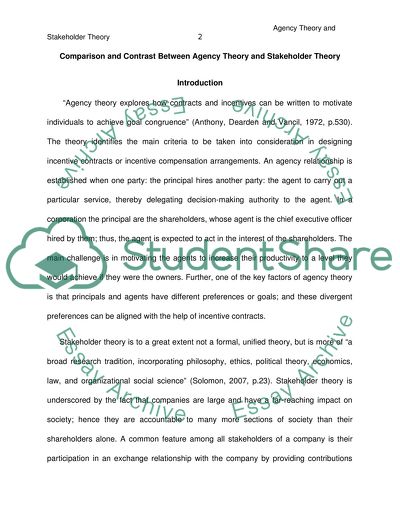Cite this document
(“Comparing and contrasting agency theory and stakeholder theory Essay”, n.d.)
Retrieved from https://studentshare.org/environmental-studies/1412835-comparing-and-contrasting-agency-theory-and
Retrieved from https://studentshare.org/environmental-studies/1412835-comparing-and-contrasting-agency-theory-and
(Comparing and Contrasting Agency Theory and Stakeholder Theory Essay)
https://studentshare.org/environmental-studies/1412835-comparing-and-contrasting-agency-theory-and.
https://studentshare.org/environmental-studies/1412835-comparing-and-contrasting-agency-theory-and.
“Comparing and Contrasting Agency Theory and Stakeholder Theory Essay”, n.d. https://studentshare.org/environmental-studies/1412835-comparing-and-contrasting-agency-theory-and.


